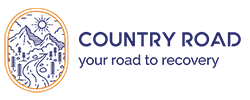The hardest lies to confront are usually the ones we tell ourselves. Addiction has a sneaky way of distorting reality, creating a false sense of control or denial that keeps people from seeking the treatment they desperately need. At Country Road Recovery, we’ve seen countless folks come through the door who once believed their own lies, only to later find freedom and healing through genuine connection and tailored care.
In this blog, we’ll explore five common stories people tell themselves that prevent them from seeking the help they deserve and how to break free from them. If you find yourself identifying with these thoughts, it may be time to pause, reflect, and rethink your stance on treatment.
“I Don’t Need Help; I Can Quit Anytime.”
This may be one of the most prevalent lies those struggling with substance abuse tell themselves. I used to say it all the time. The illusion of control over addiction is powerful, especially in the early stages when consequences may seem minimal. However, addiction is a chronic disease that progressively takes over every aspect of your life—physically, mentally, and emotionally.
We like to emphasize that acknowledging a loss of control over substance use isn’t a sign of failure at Country Road. Rather, it’s the first sign of strength and self-awareness. Our treatment programs focus on helping individuals regain control through evidence-based therapies, personalized care, and a supportive community that understands the journey to recovery.
Red Flag:
If you’ve ever told yourself, “I can quit whenever I want,” yet find yourself continuing to use despite mounting consequences, it’s time to take a deeper look at whether you’re truly in control.
2. “My Addiction Isn’t That Bad.”
Minimizing the severity of your addiction is a common form of denial. You may compare yourself to others who seem worse off, convincing yourself that your problem isn’t as urgent. The reality is that addiction affects people differently. The fact that you haven’t reached “rock bottom” doesn’t mean that your life isn’t being negatively impacted. Rock bottom looks different for everyone. Emotional strain, financial instability, relationship problems, and deteriorating health are all signs that your addiction is more serious than you think.
There is no universal standard for how bad addiction has to be before you seek help. The best time to reach out for treatment is the moment you notice substance use affecting any part of your life. Our compassionate team helps you recognize the personal toll of your addiction and guides you toward rebuilding a healthier, more balanced lifestyle.
Red Flag:
If you find yourself justifying your substance use because “it’s not as bad as others,” consider how much of your life addiction has already affected and how much better it could be without it.
3. “I Can Manage This On My Own.”
People struggling with addiction are often extremely independent and resourceful. The idea of asking for help may feel like admitting defeat, or they may genuinely believe that they can will themselves into sobriety without outside intervention. The truth, however, is that addiction rewires the brain in ways that make it nearly impossible to break the cycle without professional support.
Asking for help feels vulnerable, we get that, but it’s also incredibly empowering. Our treatment plans are designed to work with you, not against you, offering support in a way that respects your individuality and desire for self-determination. Through therapy, peer support, and holistic wellness practices, we help you create sustainable strategies for long-term recovery.
Red Flag:
If you’ve tried to quit on your own multiple times and have consistently relapsed, it’s a clear sign that professional help is necessary. Addiction isn’t a battle you have to—or should—fight alone.
4. “I Can’t Afford Treatment.”
Financial concerns are often one of the biggest barriers to seeking treatment. You might think that rehab is too expensive or that it’s simply out of reach given your current circumstances. However, what many people don’t realize is that delaying treatment often results in far more significant long-term costs—both financial and emotional.
At Country Road Recovery, we work with you to navigate the financial aspects of treatment, offering various payment plans, insurance options, and resources to make recovery accessible. The cost of addiction, in terms of lost wages, medical bills, and damaged relationships, far exceeds the cost of treatment. In fact, investing in your health and well-being now can prevent further financial devastation later.
Red Flag:
If you’re letting financial concerns stop you from getting help, explore your options. You may be surprised to find that treatment is more affordable than you thought, and the long-term benefits are invaluable.
5. “It’s Too Late for Me to Change.”
One of the most harmful lies you can tell yourself is that it’s too late to seek help, that you’ve gone too far down the road of addiction to ever turn back. This feeling of hopelessness often comes after multiple failed attempts to quit, or when the consequences of addiction feel overwhelming. But the truth is, it’s never too late to make a change.
Our program specializes in helping people who feel like they’ve lost all hope. Our comprehensive approach addresses not only the physical aspects of addiction but also the psychological and emotional toll. Whether you’re in the early stages of addiction or you’ve been struggling for years, recovery is always possible with the right support system. Everyday you wait is another day lost to addiction—but every day in treatment is a step toward reclaiming your life.
Red Flag:
If you’ve ever thought, “It’s too late for me,” remind yourself that countless people who felt the same way have found healing and peace. Recovery knows no time limits.
Why Choose Country Road Recovery?
At Country Road Recovery, we believe in offering more than just treatment—we provide a transformative experience that allows you to rediscover your true self. Our program is designed with the understanding that addiction affects every part of a person’s life, and recovery requires healing on multiple levels. Remember, asking for help is not a weakness; it’s a sign of immense strength. Take that first step and call us today.


